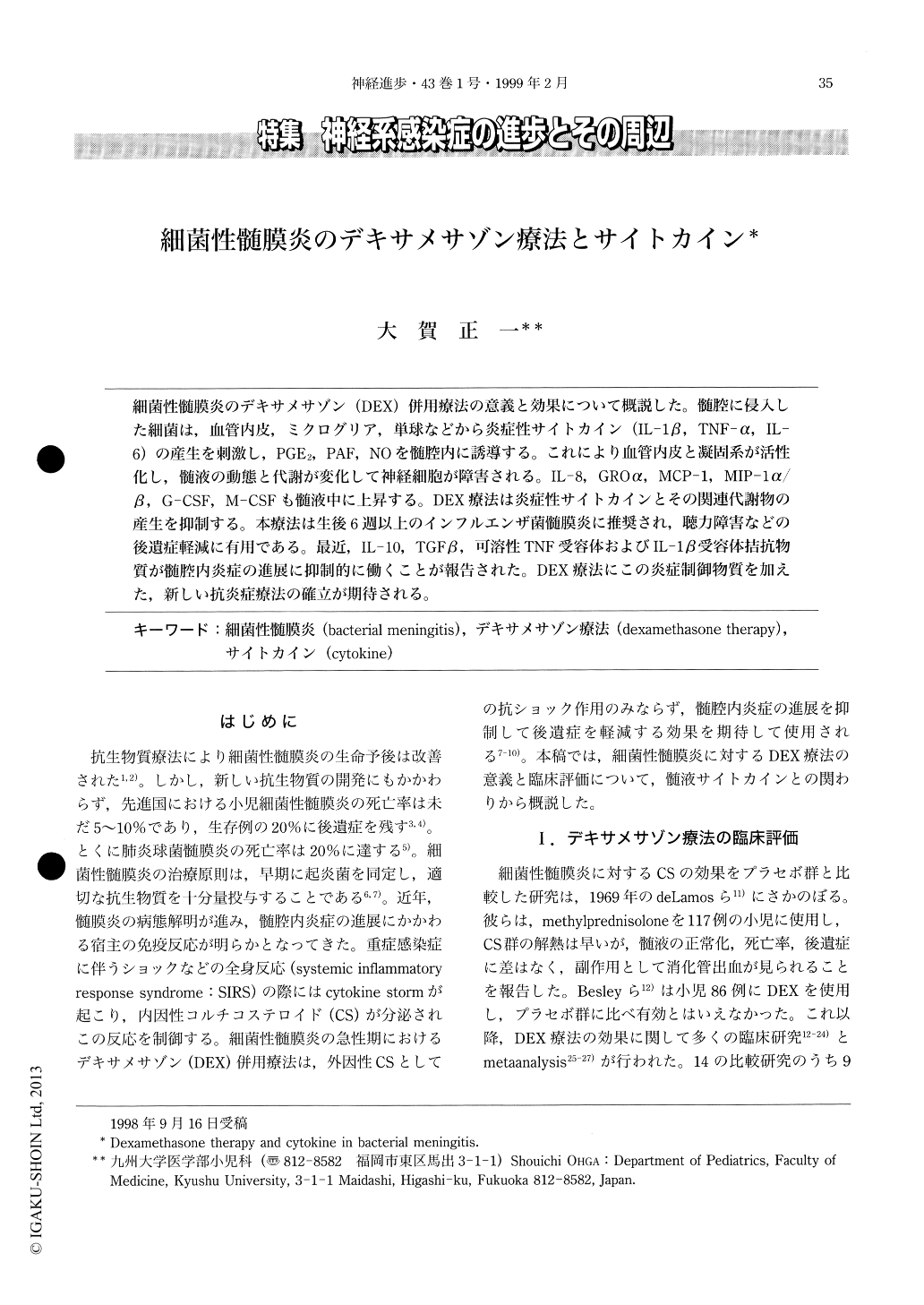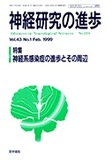Japanese
English
- 有料閲覧
- Abstract 文献概要
- 1ページ目 Look Inside
細菌性髄膜炎のデキサメサゾン(DEX)併用療法の意義と効果について概説した。髄腔に侵入した細菌は,血管内皮,ミクログリア,単球などから炎症性サイトカイン(IL-1β,TNF-α,IL-6)の産生を刺激し,PGE2,PAF,NOを髄腔内に誘導する。これにより血管内皮と凝固系が活性化し,髄液の動態と代謝が変化して神経細胞が障害される。IL-8,GROα,MCP-1,MIP-1α/β,G-CSF,M-CSFも髄液中に上昇する。DEX療法は炎症性サイトカインとその関連代謝物の産生を抑制する。本療法は生後6週以上のインフルエンザ菌髄膜炎に推奨され,聴力障害などの後遺症軽減に有用である。最近,IL-10,TGFβ,可溶性TNF受容体およびIL-1β受容体拮抗物質が髄腔内炎症の進展に抑制的に働くことが報告された。DEX療法にこの炎症制御物質を加えた,新しい抗炎症療法の確立が期待される。
We reviewed the clinical significance and usefulness of adjunctive dexamethasone (DEX) therapy for bacterial meningitis. The microorganisms which invaded into intrathecal space, could stimulate the expression of inflammatory cytokines (interleukin : IL-1β, tumour necrosis factor : TNF α, IL-6) in endothel, microglia and infiltrating monocytes. These cytokines induce the inflammation of vascular endothelium and activate coagulation cascades via the formation of prostaglandin : (PG) E2, platelet activating factor (PAF) and nitric oxide (NO). These processes further alter the cerebrospinal fluid (CSF) dynamics and metabolism to cause neurologic damage. CSF elevations of chemokines (IL-8, GROα, MCP-1, MIP-1α/β) and hematopoietic cytokines (G-CSF, M-CSF) are also reported in patients with bacterial meningitis. An intravenous administration of DEX can inhibit the intrathecal production of inflammatory cytokines and their associated metabolites. DEX therapy is recommended for 6 and more than 6 weeks of age children with Haemophilus influenzae meningitis, because this treatment could reduce the incidence of audiologic and neurologic sequelae of the disease. Recently, IL-10, TGF β, soluble TNF receptor, and IL-1β receptor antagonist are suggested to exert as antiinflammatory cytokines in central nervous system infection. The combined use of these inhibitory cytokines with DEX therapy might be a new therapeutic modality for regulating the CNS inflammation of bacterial meningitis.

Copyright © 1999, Igaku-Shoin Ltd. All rights reserved.


